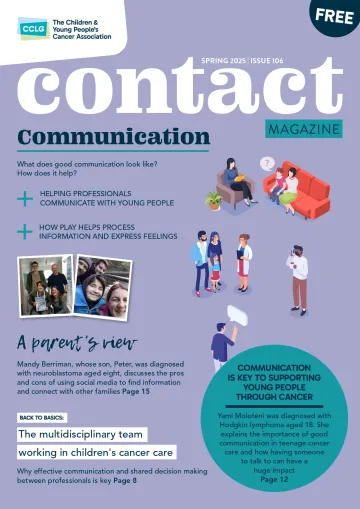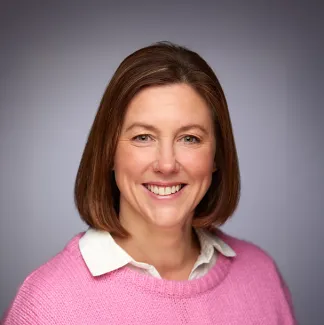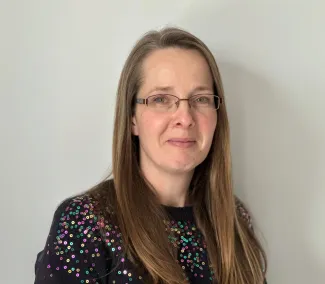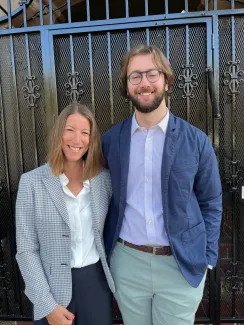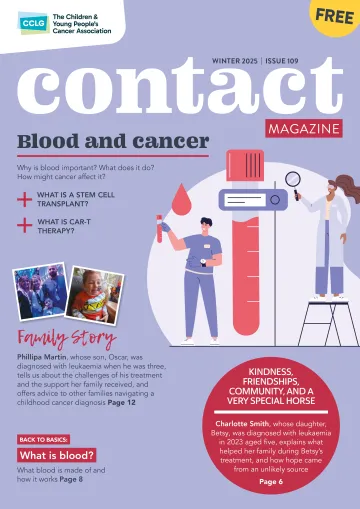Q: Tell us a little about your career so far?
A: As a paediatric speech and language therapist (SLT), I work with young people with swallow and communication challenges. Having worked in several community settings, UCLH provided the opportunity to bring my experience to the Paediatric and Adolescent Oncology team. The team here give support to children and young people with eating, drinking and swallowing needs, as well as supporting individuals with communication needs, which may have changed as part of their cancer diagnosis or treatment. Support is also provided to children and teenagers with pre-existing diagnoses which may give rise to SLT needs.
Having worked in community settings previously, I have a good understanding of the skills and knowledge of therapists working in the community. This ensures meaningful handovers are given to community teams, to ensure a streamlined approach and continued support for the families on this journey.
Q: Tell us about your role in supporting children and young people with cancer and their families?
A: In this role, we assess and offer treatment and supportive care to children and young people with both swallowing and/or communication needs. We like to get to know the young person, understand the ways in which they communicate, and make the necessary adaptations to support them through their treatment. We offer tailor-made therapy and advice to individuals receiving treatment, being mindful of their symptoms while also ensuring sessions are fun and engaging for them, which can boost their confidence.
Our job also includes assessing the safety of an individual's eating and drinking skills, and we make recommendations on the foods and drink textures that the individual can manage safely. This often requires discussion with the young person and their family, to understand what their preferences are, carrying out an assessment of their eating and drinking skills, and then liaising with the multidisciplinary team (MDT). This integrated approach ensures that the patients’ preferences are heard and are in the centre of our decision making.
Q: What is the most rewarding part of your job?
A: Every session where we can make a child smile, communicate or show enjoyment on what is an otherwise very difficult journey, makes the job worthwhile! UCLH have a unique MDT where we work closely with each other. We meet on a weekly basis and discuss the patients receiving treatment, which ensures that we all know what’s going on for the family and support them accordingly. Communication is the key to multidisciplinary working, and this is something the team here work really hard at.
Q: What does your job mean to you?
A: Speech and language therapists have a unique role in supporting young people on their journey. Having the opportunity to support a young person to find their voice again, reduce the frustration of not being able to communicate, or find the best medium for them to get their message across, is incredibly rewarding, and helps to ensure that the young person is always at the centre of the decisions being made. Watching them smile, laugh and enjoy sessions makes the job even more meaningful.
Q: Do you have a message for children and young people with cancer and their families?
A: Communication is the key to successful interactions – make sure you speak to the teams you're in contact with, ask your questions and tell them your preferences. If you don’t voice your concerns or requests, the team will be unable to try and fulfil them.
From Contact magazine issue 106 | Spring 2025

